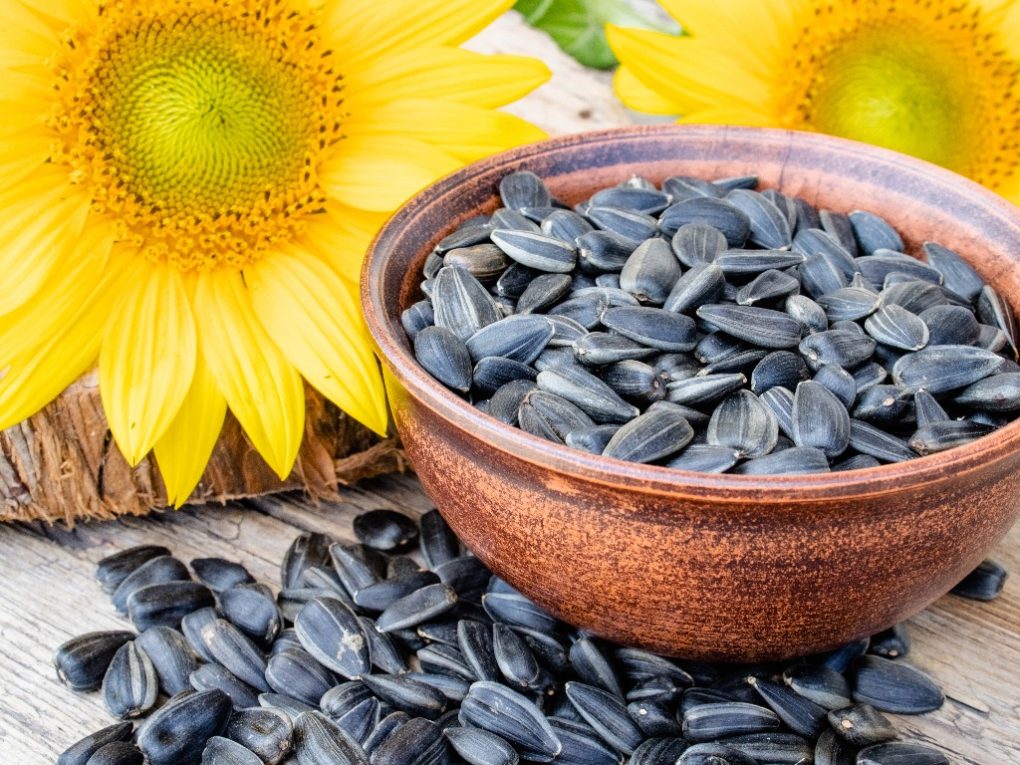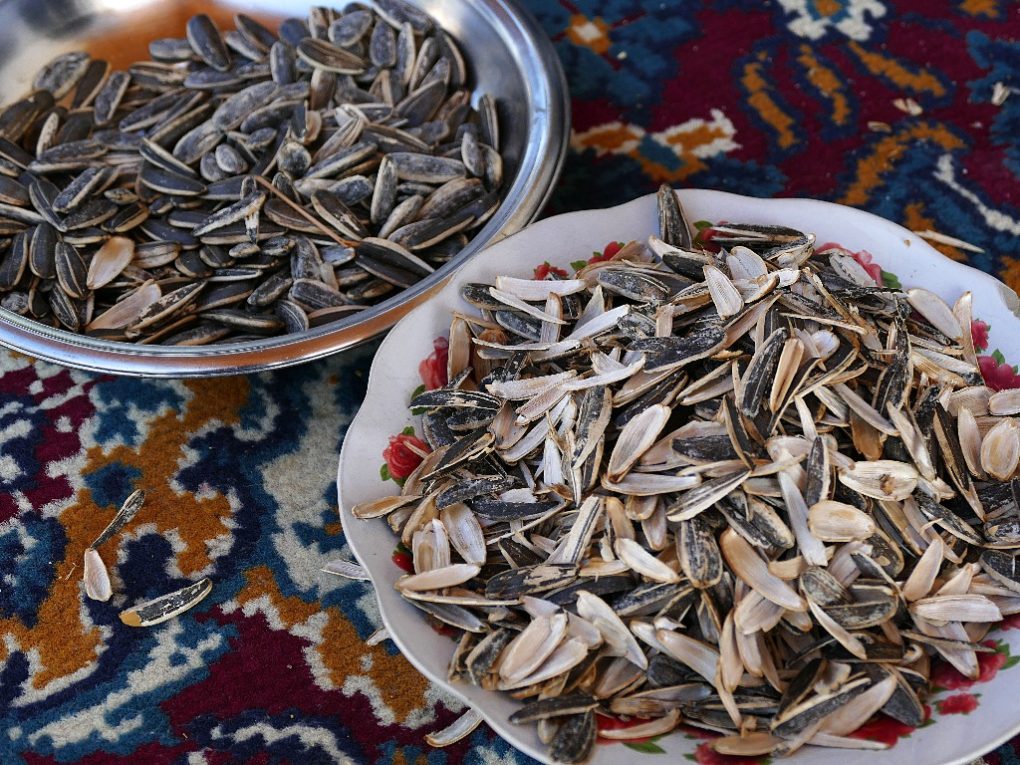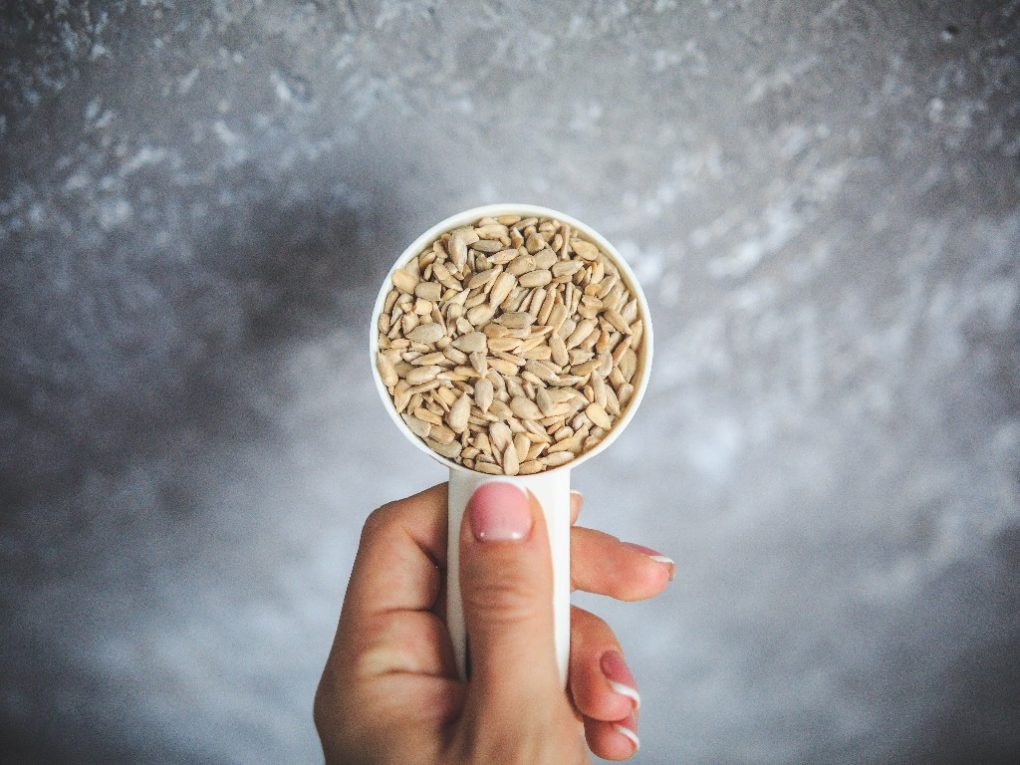Are Sunflower Seeds Considered Nuts: The Differences and Health Implications of Sunflower Seeds vs. Nuts
No, sunflower seeds are not considered nuts in the botanical sense, as they are not derived from the ovary of a tree or shrub. Instead, they are the fruit of the sunflower plant (Helianthus annuus), which belongs to the family Asteraceae.

However, from a culinary perspective, sunflower seeds are sometimes considered nuts due to their similar texture and flavor. They are used in baking and cooking and are often added to salads or consumed as a snack. Despite this, people with nut allergies usually tolerate sunflower seeds well.
Table of Contents
Difference Between Nuts and Sunflower Seeds
Nuts and sunflower seeds are plant-based foods high in nutrients and can be enjoyed in various culinary applications. However, there are differences between the two:
- Botanical Classification: Nuts are fruit from a tree or shrub, with a hard, inedible outer shell containing a seed. On the other hand, sunflower seeds are the edible fruit of the sunflower plant.
- Nutrient Composition: Both nuts and sunflower seeds are rich in nutrients such as protein, fiber, vitamins, and minerals. However, the specific nutrient composition can vary depending on the type of nut or seed. For example, nuts like almonds and walnuts are high in monounsaturated and polyunsaturated fats, while sunflower seeds are high in vitamin E, magnesium, and selenium.
- Culinary Use: Nuts are often consumed as a snack or added to dishes for flavor and texture, while sunflower seeds are commonly used as a topping for salads, yogurt, or smoothie bowls. Sunflower seeds are also used to produce sunflower oil, which can be used for cooking or dressing.
- Allergies: Nuts and sunflower seeds are the most common food allergens, and some people may be allergic to one or the other. However, nut allergies tend to be more common and severe than sunflower seed allergies.
The Benefits of Eating Sunflower Seeds
Both sunflower seeds and nuts are nutritious and offer a variety of health benefits. However, some differences in their nutrient profiles may make one more beneficial than the other for certain individuals or health conditions. Here are some potential benefits of eating sunflower seeds compared to nuts.

Rich in Vitamin E
Sunflower seeds have more vitamin E than most nuts. The vitamin E found in sunflower seeds offers potential health benefits, including antioxidant protection. Furthermore, it plays a crucial role in protecting cells from damage caused by free radicals. This can help reduce the risk of chronic diseases such as cancer, heart disease, and Alzheimer’s.
Vitamin E is crucial for maintaining healthy skin by protecting against UV radiation and reducing inflammation. It also helps improve skin texture and reduce the appearance of fine lines and wrinkles. Vitamin E further supports immune function by enhancing the activity of immune cells and reducing inflammation.
Also, Vitamin E may play a role in reducing the risk of age-related macular degeneration, a leading cause of blindness in older adults. It also has anti-inflammatory effects, which can help reduce the risk of chronic inflammation and associated diseases.
High in Magnesium
Sunflower seeds are a good source of magnesium, an essential mineral that plays a key role in many bodily functions. Here are some potential benefits of magnesium:
- Bone Health: Magnesium is important for bone health and helps to maintain strong bones and teeth.
- Heart Health: Magnesium helps to regulate heart rhythm and can help lower blood pressure. It may also reduce the risk of heart disease and stroke.
- Blood Sugar Control: Magnesium plays a role in glucose metabolism and insulin signaling, making it important for blood sugar control. It may also help reduce the risk of type 2 diabetes.
- Muscle and Nerve Function: Magnesium is important for muscle and nerve function and helps regulate muscle contraction and relaxation.
- Anxiety and Depression: Some research suggests that magnesium help reduce symptoms of anxiety and depression, possibly by regulating neurotransmitter function.
Gluten-Free
Unlike some nuts, sunflower seeds are naturally gluten-free, making them a good snack for those with celiac disease or gluten intolerance. Sunflower seeds are naturally gluten-free, which makes them a great option for people with celiac disease or gluten sensitivity.

Some potential benefits of including gluten-free sunflower seeds in your diet include improved digestive health. Consuming gluten can lead to digestive symptoms such as bloating, gas, and diarrhea for people with celiac disease or gluten sensitivity. Choosing gluten-free options like sunflower seeds can help improve digestive health and reduce these symptoms.
People with celiac disease or gluten sensitivity may have difficulty getting enough nutrients from their diet, as many common sources of nutrients contain gluten. Choosing gluten-free options like sunflower seeds can help ensure adequate nutrient intake. They are a great source of protein, healthy fats, fiber, and micronutrients like vitamin E and magnesium.
A gluten-free diet can also help improve overall health for people with celiac disease or gluten sensitivity. For example, it may reduce inflammation, improve immune function, and decrease the risk of chronic diseases like heart disease and type 2 diabetes.
It’s worth noting that not all sunflower seeds are necessarily gluten-free. Cross-contamination can occur during processing, so choosing products labeled gluten-free or certified by a third-party organization is important.
Sunflower seeds are a nutritious and delicious food that offers a variety of health benefits. Some of the key benefits of eating sunflower seeds include the following:
- High in Nutrients: Sunflower seeds are a good source of protein, healthy fats, fiber, and important vitamins and minerals such as vitamin E, vitamin B6, folate, magnesium, zinc, and selenium.
- Supports Heart Health: Sunflower seeds are rich in heart-healthy fats, including monounsaturated and polyunsaturated fats, which can help lower LDL cholesterol levels and reduce the risk of heart disease.
- May Help Regulate Blood Sugar: Sunflower seeds contain fiber and protein, which can help slow glucose absorption in the bloodstream and improve blood sugar control.
- May Improve Brain Function: Sunflower seeds are a good source of vitamin E, which has been linked to improved cognitive function and a reduced risk of Alzheimer’s disease.
- May Boost Immune Function: Sunflower seeds are high in antioxidants such as vitamin E and selenium, which can help protect against cellular damage and boost immune function.
- May Help with Weight Management: Sunflower seeds are a nutrient-dense food that can help you feel fuller for longer, potentially leading to reduced calorie intake and improved weight management.
The Risks of Eating Sunflower Seeds Over Nuts
Both sunflower seeds and nuts can be healthy and nutritious additions to your diet when consumed in moderation. However, sunflower seeds and nuts can cause allergic reactions in some people. Symptoms of a nut or seed allergy may include itching, swelling, hives, difficulty breathing, and anaphylaxis in severe cases.
Both sunflower seeds and nuts are also high in calories, which means that consuming large quantities can contribute to weight gain. Therefore, eating them in moderation and as part of a balanced diet is important.
Flavored sunflower seeds and nuts may contain added ingredients like salt, sugar, or oils that can increase the calorie and sodium content. It’s important to read the label and choose minimally processed products that don’t contain added ingredients.
In addition, sunflower seeds and nuts are small and can pose a choking hazard, especially for young children. Therefore, it’s important to supervise children while eating and ensure they are chewing their food thoroughly.
